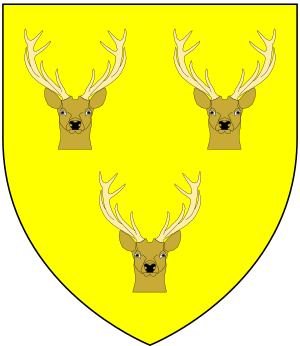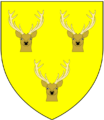Peter Colleton facts for kids
Sir Peter Colleton, 2nd Baronet (born September 17, 1635 – died March 24, 1694), was an important English figure. He was a baronet, which is a special title of honor passed down through families, and he also served as a Member of Parliament (MP). This means he was part of the government, helping to make laws for England.
Contents
Early Life and Family
Peter Colleton was born in 1635. He was the oldest son of Sir John Colleton, 1st Baronet. His family was from Exeter, a city in Devon, England. When his father passed away in 1667, Peter inherited his father's title and became the 2nd Baronet.
Business and Trade
Sir Peter Colleton became a successful merchant. Merchants are people who buy and sell goods, often traveling to different places to trade. His work involved important trading companies of his time.
Work in Barbados
From 1664 to 1684, Sir Peter was a member of the council in Barbados. Barbados is an island in the Caribbean Sea. Being on the council meant he helped govern the island and manage its affairs.
Major Trading Companies
Sir Peter was also involved with two very important trading companies:
- He was a member of the Royal Adventurers into Africa from 1667 to 1672. This company was involved in trade across the Atlantic Ocean.
- He joined the Hudson’s Bay Company in 1670 and remained a member until his death. The Hudson's Bay Company was a powerful trading company that focused on the fur trade in North America.
Science and Learning
In 1677, Sir Peter Colleton was chosen to be a Fellow of the Royal Society. The Royal Society is a very old and respected group in England that promotes science. Being a Fellow means he was recognized for his interest in and support of scientific knowledge.
Political Career
Sir Peter Colleton served as a Member of Parliament (MP) for a place called Bossiney. An MP is a person elected by citizens to represent them in the country's parliament, where laws are made. He served two terms as an MP:
- From 1681 to 1685
- From 1689 to 1694
He played a role in the English government during these years.
Images for kids
 | Aaron Henry |
 | T. R. M. Howard |
 | Jesse Jackson |



